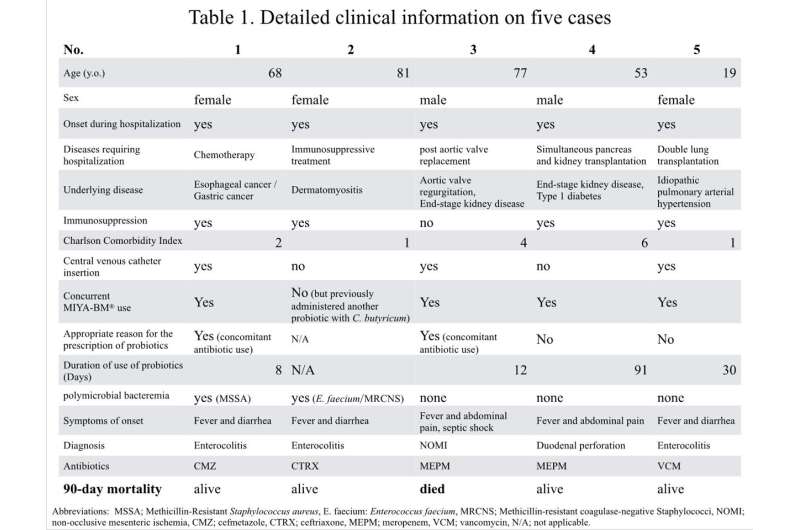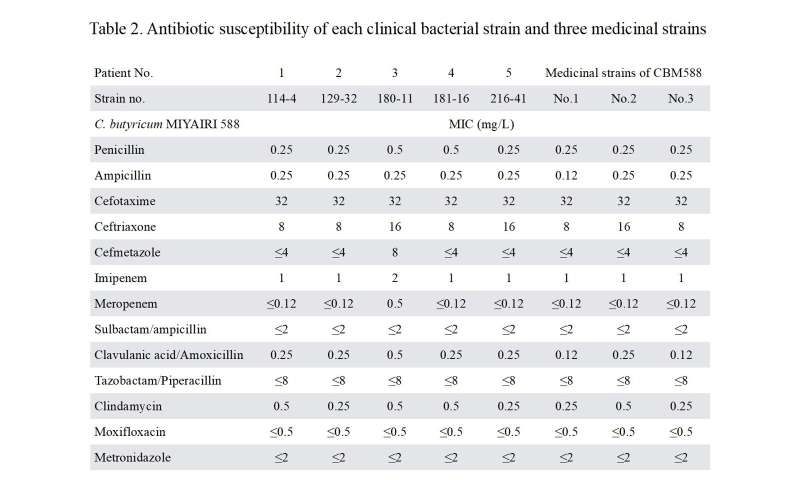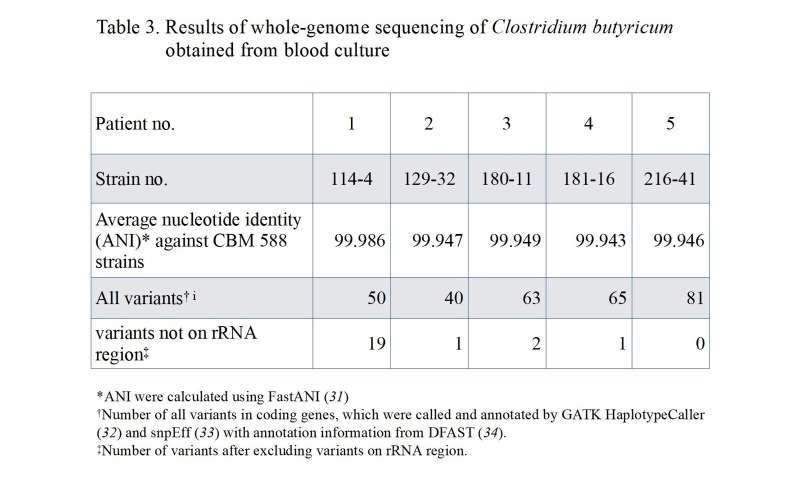This article has been reviewed according to Science X's editorial process and policies. Editors have highlighted the following attributes while ensuring the content's credibility:
fact-checked
peer-reviewed publication
trusted source
proofread
When good bacteria go bad: New links between bacteremia and probiotic use

Probiotics offer a range of health benefits, but their adverse effects can occasionally lead to bacteremia, wherein bacteria circulate in the bloodstream throughout the body. In Japan, Clostridium butyricum (C. butyricum) MIYAIRI 588 is commonly used, yet the prevalence and characteristics of bacteremia caused by this strain, as well as its bacteriological and genetic profile, remain unknown.
A research team from the Graduate School of Medicine, Osaka University, found an association between bacteremia and probiotics from a study of the genetic materials of bacteria in hospitalized patients with bacteremia. The study is published in the journal Emerging Infectious Diseases.
From September 2011 to February 2023, Osaka University Hospital documented 6,576 cases of positive blood cultures. Among these, C. butyricum was detected in five cases (0.08%).
-

Antibiotic susceptibility of each clinical bacterial strain and three medicinal strains. Credit: Osaka University -

Results of whole-genome sequencing of Clostridium butyricum obtained from blood culture. Credit: Osaka University
Whole-genome sequencing revealed that all five strains of C. butyricum-causing bacteremia were derived from probiotics. In two of these cases, no clear reason for appropriate oral intake of the probiotics could be identified, and one patient died within 90 days after the bacteremia diagnosis.
"Probiotics can provide a variety of health benefits, but this study shows that even such agents can present with rare but serious adverse events," says study lead author Ryuichi Minoda Sada.
"Our findings underscore the risk for bacteremia resulting from probiotic use, especially in hospitalized patients, necessitating judicious prescription practices."
It is expected that the results of this study will increase awareness of the potential health risks associated with probiotics. It is recommended to avoid aimless and unnecessary prescribing of probiotics, especially in hospitalized patients undergoing immunosuppressive treatment.
More information: Ryuichi Minoda Sada et al, Clostridium butyricum Bacteremia Associated with Probiotic Use, Japan, Emerging Infectious Diseases (2024). DOI: 10.3201/eid3004.231633




















